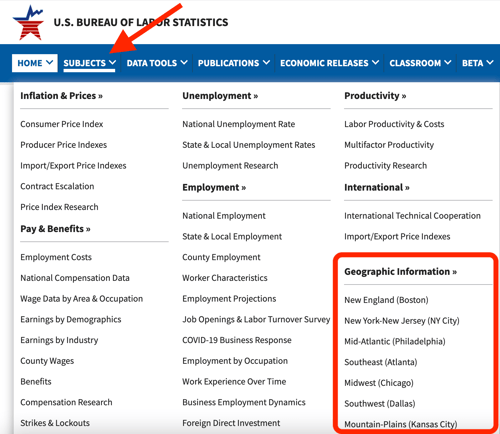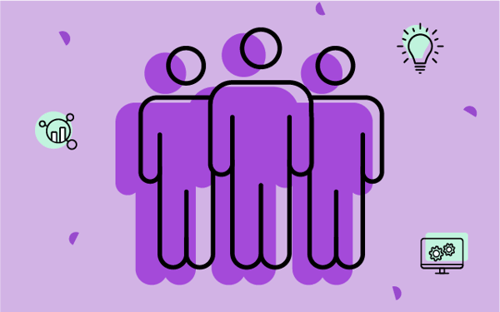Business Intelligence (BI) and Competitive Intelligence (CI) are both critical for improving the performance and success rate for your organization. While both are different in practice, when put together, they are an equation for business success. Business Intelligence focuses more on internal strategies, where Competitive Intelligence allows businesses to focus on what’s happening outside the four walls of a company.
Both Business Intelligence and Competitive Intelligence have similar frameworks for success. Business Intelligence starts with collecting data from internal sources, then integrating information into one centralized location, analyzing your findings, and finally acting upon what you’ve found. Competitive Intelligence follows a framework that looks very much like a BI process. For Competitive Intelligence, you start with capturing data from external sources, followed by an analysis of your findings, ending with acting upon your findings.
Although these two strategies share similar processes, their benefits differ. Let’s take a look at how BI and CI have unique benefits for your organization.
What is Business Intelligence?
Business Intelligence is inward facing and has been practiced for years. Business intelligence is the process of gathering data about your business from a multitude of sources and centralizing it so that you can analyze it, and ultimately, make decisions that will benefit the growth of the company. The goal of business intelligence is to comb through data and make decisions to implement new or improve upon existing initiatives and strategies that will make your business more efficient.
Benefits of Business Intelligence
Your entire organization can benefit from Business Intelligence. Your business likely has multiple data sources that hold valuable intelligence for each of your teams. Here is how each team within your organization can benefit from Business Intelligence data.
- Benefits for Product Marketing: Product marketing can improve many parts of its strategy with business intelligence. Most importantly, PM can improve product launches and sales enablement activities, and better target their ideal customers. To do so, Product marketing needs to analyze what has been done in the past such as product launches, campaigns, and win/loss analysis, and take into consideration what worked and what didn’t when planning future initiatives.
- Benefits for Marketing: Your marketing team can get a deeper understanding of how their campaigns are performing, blog post metrics, and overall site traffic. By getting a better understanding of these marketing metrics, your marketing team can figure out where to invest more time, which campaigns to continue, and which pieces of content to promote more.
- Benefits for Sales: For sales organizations, business intelligence is extremely beneficial. By diving into sales numbers, you can get a better understanding of which deals close the fastest, average sales cycle lengths, and which reps are performing the best. With this data, you can better train your sales team and enable them to close more deals.
- Benefits for C-Suite: Your C-Suite wants to know everything that’s happening in the trenches of your company. Business intelligence can help your c-suite make informed decisions about processes, investment, hiring, and greater business decisions.
- Benefits for Product: Your product team can gather a lot of valuable information using business intelligence. Your product team can analyze overall product usage, feature adoption, and see your most active users. This can help your product team when it comes to building out the next phases of a product, and it can help identify power users, which can be beneficial when it comes to Beta testing future versions of your product.
- Benefits for Human Resources: Your HR department can analyze your past employees and current employees as well as your culture overall. Some valuable pieces of intel for HR are salaries, how long an employee stays, why an employee leaves, and how your culture has changed over time. By looking at these pieces of information, your HR team can ensure they are creating a strong internal culture and making your business a place that people want to work.
What is Competitive Intelligence?
Competitive intelligence is outward facing, and a relatively new business strategy that has been adopted more during recent years. Competitive intelligence is the process of gathering data about your competitors, understanding key information, and using your findings to anticipate your competitors' next move. CI allows you to better understand your competitive landscape and improve upon your own internal initiatives. Ideally, a strong competitive intelligence strategy will allow you to gain full insight into what your competition is doing and make predictions on where they are moving next.
Benefits of Competitive Intelligence
Much like Business Intelligence, every team within your organization can reap the benefits of a successful competitive intelligence strategy. Without a deep understanding of competitive intelligence, it's sometimes believed that CI only benefits your sales team. However, there are benefits beyond sales for product marketing, marketing, product, your c-suite, and your admin / human resources teams.
- Benefits for Product Marketing: Competitive intelligence can help product marketers in many ways. By taking a look at what your competition is doing, as well as conducting research among your target audience, product marketers can enhance messaging and positioning, create winning sales enablement tools, and execute successful product launches that stand out and address the market’s needs.
- Benefits for Marketing: Marketers can drive a lot of value from competitive intelligence insights. Marketers can take a look at competitors’ content strategy, campaigns, social media posts, SEO rankings, and events that the competition is attending. By analyzing your competitors' marketing efforts, you can incorporate your findings into your own strategy, and find new ways to differentiate yourself from the competition.
- Benefits for Sales: Sales needs competitive intelligence to successfully do their job because, without it, they will have a hard time winning those competitive deals. With the help of CI through tools such as battlecards or SWOT analyses, sales teams can better position themselves against competitors and win more competitive deals.
- Benefits for C-Suite: By keeping a pulse on your competition, your C-Suite can stay on top of funding announcements, partnerships, and can track overall market standing. This will help them make decisions about where your company can go next when it comes to funding, partners, and the general strategy for company growth.
- Benefits for Product: Product teams benefit immensely from keeping a pulse on competitors’ products. With the help of resources such as competitive matrices and third-party reviews, your product team can see where you stand within the market. In addition, your product team can take market feedback and competitor updates, and use those findings to iterate on your own product.
- Benefits for Human Resources: With the help of CI, your HR team can better attract and retain talent, build a positive company culture, and offer competitive salaries and benefits. It’s not a common use case, but HR tracking your competitors' team and culture insights is a great way to maintain a competitive edge within your industry.
Although these two business strategies are practiced differently and impact different parts of your business strategy, when put together, they can ensure success. You can stay on top of your own growth as well as keeping track of your competition, making you the ultimate market leader.

Related Blog Posts
Popular Posts
-
 How to Create a Competitive Matrix (Step-by-Step Guide With Examples + Free Templates)
How to Create a Competitive Matrix (Step-by-Step Guide With Examples + Free Templates)
-
 The 8 Free Market Research Tools and Resources You Need to Know
The 8 Free Market Research Tools and Resources You Need to Know
-
 Sales Battlecards 101: How to Help Your Sellers Leave the Competition In the Dust
Sales Battlecards 101: How to Help Your Sellers Leave the Competition In the Dust
-
 6 Competitive Advantage Examples From the Real World
6 Competitive Advantage Examples From the Real World
-
 How to Measure Product Launch Success: 12 KPIs You Should Be Tracking
How to Measure Product Launch Success: 12 KPIs You Should Be Tracking





